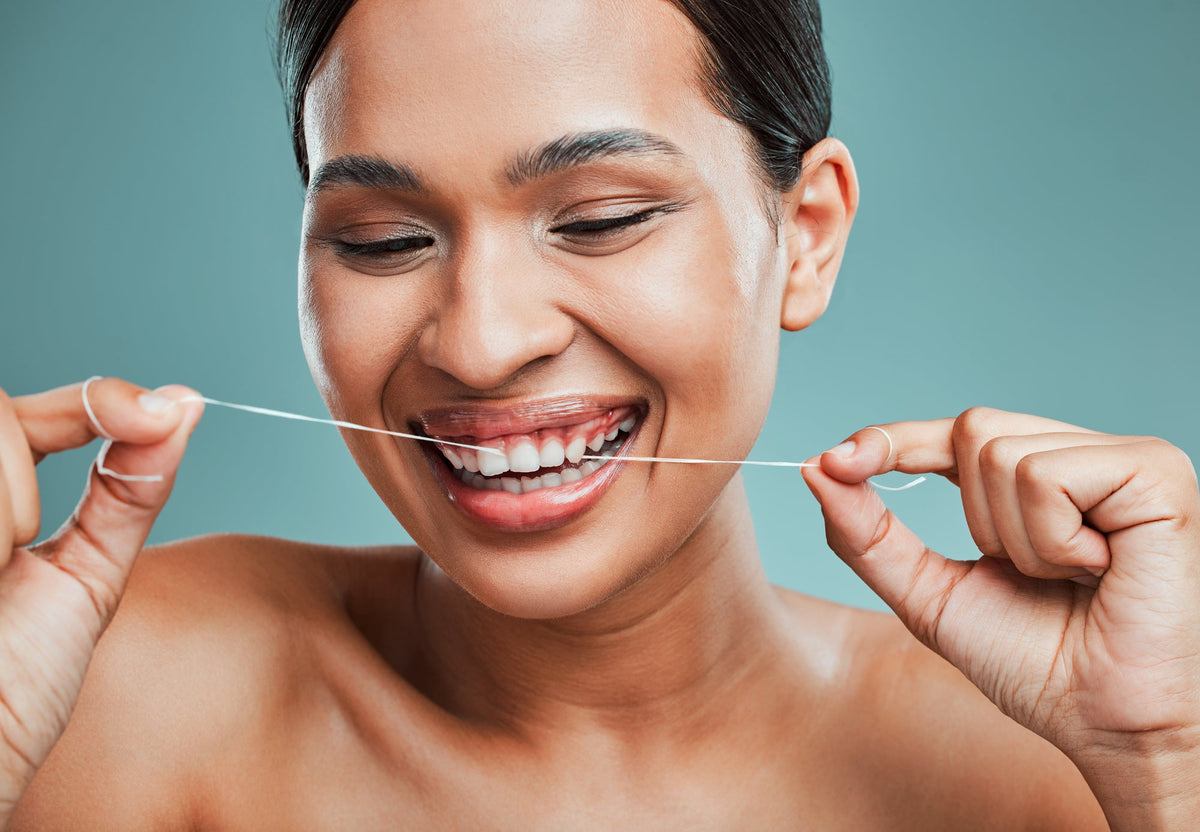
Daily Habits That Support a Holistic Oral Care Routine
|
Time to read 5 min

|
Time to read 5 min
Oral health is more than just brushing and flossing—it's a reflection of your overall well-being. In holistic dentistry, the mouth is seen as an integral part of the body, where imbalances can lead to or reflect systemic issues. A truly healthy smile requires daily habits that support not only clean teeth, but also a balanced oral microbiome, nourished gums, strong enamel, and minimized exposure to harmful chemicals.
Whether you're looking to switch to a more natural oral care approach or want to level up your existing routine, this guide outlines the most effective daily habits for maintaining a holistic oral care routine that protects your teeth, supports your health, and aligns with natural living principles.
Conventional dental care often focuses solely on symptom management—treating cavities, gum disease, or sensitivity with chemical agents and invasive procedures. Holistic oral care, on the other hand, emphasizes prevention, nourishment, and balance using natural, biocompatible ingredients that work in harmony with the body.
A holistic routine supports:
The good news? Creating a holistic oral care routine doesn’t require expensive treatments or complicated regimens. Just a few simple, intentional daily habits can make a powerful difference.
1. Start with Oil Pulling in the Morning
Oil pulling is an ancient practice that involves swishing oil (typically coconut, sesame, or sunflower) in your mouth for 5–20 minutes. This simple habit helps remove toxins, reduce harmful bacteria, and support gum and overall oral health.
How it helps:
How to do it:
Swish several drops of OraRestore or 1 teaspoon of organic coconut or sesame oil in your mouth upon waking (before eating or brushing), for 5 to 20 minutes, then spit it out. Rinse with warm water and continue with your routine.
2. Use a Natural Toothpaste with Remineralizing Ingredients
Skip conventional toothpastes filled with fluoride, SLS, artificial sweeteners, and dyes. Instead, choose a holistic toothpaste with gentle, non-toxic, and effective ingredients like:
Brush twice a day for two minutes using a soft-bristled brush and circular motions that gently massage the gums and clean all tooth surfaces.
3. Floss (or Use Alternatives) to Remove Debris and Bacteria
Flossing is essential for cleaning areas your toothbrush can’t reach. The primary purpose of flossing daily is to disrupt the bacterial life cycle. It helps to prevent plaque buildup, gum inflammation, and the growth of harmful bacteria between teeth.
Choose natural, waxed silk floss, corn-based floss, or even a water flosser if string floss is difficult. Floss gently once per day, ideally before bed, to remove food particles and keep your gum tissue healthy.
4. Rinse with an Alcohol-Free, Holistic Mouthwash
Many commercial mouthwashes contain alcohol and synthetic ingredients that can disrupt the oral microbiome and dry out the mouth. Holistic mouthwashes are formulated with plant-based antimicrobials, alkalizing minerals, and soothing botanicals to freshen breath, fight bacteria, and support healing.
Look for mouthwashes that include:
Use once or twice daily after brushing and flossing, or whenever you need a refreshing cleanse.
5. Stay Hydrated and Stimulate Saliva
Saliva is the body’s natural defense mechanism against cavities and gum disease. It helps neutralize acids, remineralize enamel, and flush away bacteria. Dry mouth, on the other hand, can lead to plaque buildup, bad breath, and tooth decay.
Support saliva production by:
6. Nourish Your Teeth from Within with the Right Diet
What you eat directly affects your oral health. A mineral-rich, anti-inflammatory diet helps prevent decay, rebuild enamel, and support healthy gums.
Eat more of:
Avoid or limit:
7. Support the Oral Microbiome
Just like your gut, your mouth has a microbiome—a delicate ecosystem of bacteria that help maintain oral balance. Holistic oral care focuses on supporting good bacteria, not just killing bad ones.
To maintain a healthy oral microbiome:
Balancing your oral microbiome helps protect against cavities, gum disease, and even bad breath.
8. Mind Your Stress and Sleep
Stress and poor sleep weaken the immune system, increase inflammation, and contribute to conditions like bruxism (teeth grinding), which can erode enamel and damage the jaw.
Incorporate stress-reducing practices into your daily routine:
Good sleep and lower stress support not just your oral health—but your whole body.
9. Tongue Scraping for Fresh Breath and Detox
Your tongue can harbor bacteria, food particles, and toxins. Tongue scraping is a simple practice that helps detoxify the mouth, improve taste, and reduce bad breath.
Use a stainless steel or copper tongue scraper every morning before brushing. Gently drag it from the back of your tongue to the front 2–3 times, rinse, and continue with your oral routine.
10. Don’t Skip Regular Check-Ins with a Holistic Dentist
Even the most diligent at-home care can benefit from professional guidance. A holistic or biological dentist can offer biocompatible treatments, early detection of imbalances, and natural alternatives for common procedures.
Schedule a dental check-up at least once or twice a year, or as recommended, to ensure your holistic efforts are on track and to catch any issues early.
A holistic oral care routine is about more than avoiding cavities—it’s about aligning your daily habits with your body’s natural ability to protect, repair, and maintain oral health. From oil pulling and natural toothpaste to mindful eating and microbiome balance, these simple, effective habits can make a powerful impact on your long-term well-being.
By integrating these practices into your daily life, you're not just supporting your teeth and gums—you're caring for your whole body in a conscious, natural way.
Yes, if you address the root cause early, sensitivity can improve with proper care.
Absolutely! Ingredients like hydroxyapatite and calcium phosphate can rebuild enamel naturally without fluoride.


